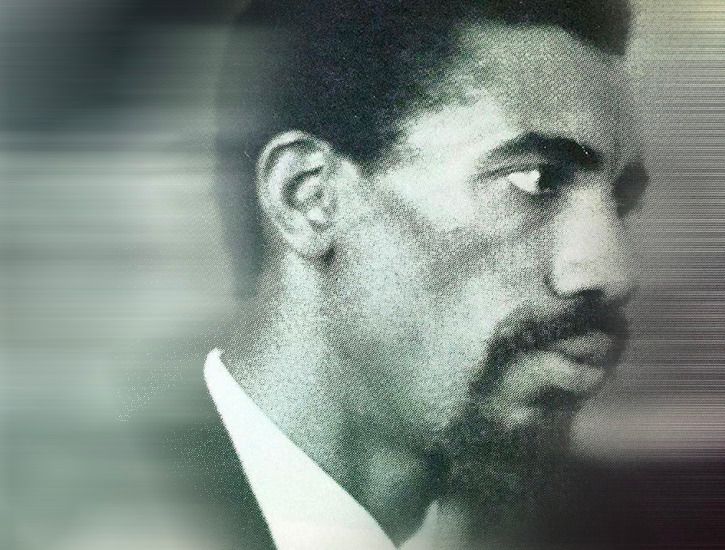January

Hello!
I have lived 37 years and 17 days, which means that January must have come and gone, and as far as Oakland is concerned, taken winter along with it. Outside, the sun is shining, the Flowering Plum Trees are flowering, and the trails of the East Bay Regional Parks are not so much trails but swamps overspreading their banks. And yet, these signs of life amidst the stable chaos of the world feel fragile, uncertain, misguided. Death is the only certainty, after all, and I am not sure I'm ready for the tenuous hopefulness of renewal. Appraising earthquakes, warring civilizations, declining literacy rates, and the violent oppression of Black people in the US in the numbly dead-white of winter is one thing. To confront suffering amidst the sweetness of plum blossoms is another.
Happy Spring in the Anthropocene. Here are the blossoms that stirred me in January:
Anthology
I ready myself to sing the praises of yet another anthology, that world-making, genre-creating literary collection. Anthologies gather, they cohere, they suggest, they maybe define, or better yet just hold in tension various coils of meaning. These writers all together help us think about what horror is, or what sci-fi is, or what a certain diaspora across a certain time period was concerned with. These stories all together help us touch the diversity of thought and mind across time and space that came to swirl around the same questions or themes or metaphors or touchstones.
Dark Matter: A Century of Speculative Fiction From the African Diaspora, edited by Sheree Renee Thomas (current editor of the Magazine of Fantasy & Science Fiction) has been on my to-read list for years. I finally read it! Contemporary-to-the-anthology pieces from Nalo Hopkinson, Nisi Shawl, Linda Addison, Steven Barnes sit alongside early 20th century pieces from W.E.B. DuBois, Henry Dumas, Derrick Bell, Charles Chestnutt, and later pieces by Octavia Butler, Samuel Delany, Ishmael Reed. The effect is, among other things, to establish a highly engaging tradition of Black speculative fiction stretching back to the early 20th century.
Honorée Fanonne Jeffers' "Sister Lilith," a retelling of Adam, Lilith, and Eve's creation is delicious to read. Henry Dumas's "Ark of Bones," another take on the Bible, in this case the story of Headeye and Fish-hound and their journey, like Ezekiel, through the valley of dry bones, made me fiercely miss the absence of the rest of Dumas's work, lost, gone forever, because a cop shot him to death, on a train, for nothing, when he was 33, in 1968. From "Ark of Bones":
By and by the clouds started to get thick as clabber milk. A wind come up. And even though the little waves slappin the sides of the bank made the water jump around and dance, I could still tell that the river was risin. I looked at Headeye. He was wanderin off along the bank, wadin out in the shallows and leanin over like he was lookin for somethin.
Anthology means, coincidentally enough, "a gathering of flowers" or "a collection of blossoms." Breathe deeply.
Novel
I read, in one sitting, Kazuo Ishiguro's Never Let Me Go, got up, walked around the house a little, felt unbearably bleak, and had a sadness hangover for the next 24 hours. Don't read Never Let Me Go in one sitting. The horror of this story is its refusal to be horrifying, to refuse its children the expression of even the slightest autonomy—in the form of rejection, shock, fear, or acknowledgement of or at their awful situation. Children if children were dairy cows. A great book about the vulnerability of bodies, the embarrassment of children, and just how mundane the prospect of slaughter can be made.
Book
Zenju Earthlyn Manuel is an Oakland-based zen priest whose books I turn to in order to understand how to be, how to confront suffering, how to thaw. I listened to and deeply enjoyed her most recent book, The Shamanic Bones of Zen, but it is The Way of Tenderness that I found myself returning to in January:
We have bodies so that we can engage life. We need our bodies to experience our hearts and minds. Most of us will not transcend them until death. If the body can withstand the arising and ceasing of pain and suffering, there is no need to transcend it. We need to transcend, instead, our belief that spirituality does not include the body. Of course the body would hold no interest for us were we not interested in awakening, which happens through this body. Because we long for and enjoy experiences of awakening, the body is deeply interesting to us. Given the deep relationship between awakening and the body, why not explore the surfaces of this body—its race, sexuality, and gender—in relation to awakening at its heart?
Poetry
Poet, potter, and climber—and friend!—Narinda Heng has released a chapbook of her poetry every year since 2010. Though her latest collection, here, was published in December 2022, I did not receive my copy until January 2023 and thus, here we are.
i want to learn
what moss knows:
how to grow only when the rains come
how to lay dormant when it is dry
how to thrive in shadow
how to stay
Until next month,
Endria
Member discussion